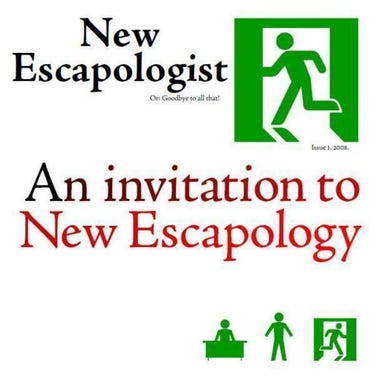Preamble
Imagine you’re four years old again and that you’re being led by an avuncular man to a bare room in a vast building with shadowy corridors. He sits you on a chair in front of which you see—within easy grabbing distance—a plump marshmallow on a child-sized plate. The man looks into your eyes and says: “Here’s the deal, I’m just going to go out of the room for a few minutes, if you don’t eat the marshmallow by the time I get back, you’ll get another one. Okay?” You nod, noticing a large mirror on the wall in front of you, then your attention returns to the marshmallow. You like marshmallows. The question is: What are you going to do?
The Marshmallow Experiment was devised by Stanford University’s Walter Mischel in order to understand children’s ability to defer gratification. For instance, some grab it as soon as the adult has left the room, some wait a few minutes then eat it, and some wait the full twenty minutes, amusing themselves in order to distract their attention away from their sweet. So far, so predictable. The really interesting data only emerged in the ensuing decades, when Mischel discovered that the ability to resist temptation in the marshmallow experiment was a far better predictor of overall life success than any SAT, GCSE or IQ test.
When I read about this in Daniel Goleman’s Emotional Intelligence, the scales fell from my eyes. All my failures — my missed deadlines, my preference for the path of least resistance, my lack of integrity — were surely due to this inability to direct desires away from instant gratification and towards future reward. Self-control was the key, and I was banging on the door of life with empty pockets.
Remote Control
Childhood self-discipline is instilled in us by our parents and, although mine had managed to whip me through school, A-levels and University, the minute they cut the purse strings, the puppet strings were cut at the same time. So much of bourgeois life is confirmed in advance that volition rarely rears its head. Most people go through their entire lives never questioning the path that has been marked for them. But when they do, when the decision rest solely with them and they haven’t got an easy answer, then the cracks begin to appear. Like so many people these days, I didn’t want to get a boring office job, I wanted to be a poet and society’s indifference was a gilt-edged invitation to introspection.
This desire to be unconventional leads one to doubt everything. Why should you have a shower in the morning? Why should you read middlebrow novels and wear gel in your hair and have two weeks in the Balearics every year? None of these things are set in stone. Not even the tarmacadam on our roads is set in stone — it is all contingent, dependent on decisions made in the past, choices that could have been different and still could change sometime in the future. That which seems solid melts into air when you begin to doubt everything around you.
And thus, for the past few years, I have been obsessed with finding an answer to the question: Why? Why shouldn’t I live like an animal and reduce my existence to sleeping, fucking and eating? Why should I bother upholding contemporary standards of hygiene? The central question, once my bourgeois expectations ran out of steam, was: What am I here to do? What is my purpose? What is the meaning of life?
I believed that if I had an answer, then ipso facto everything would be okay. It was finding the answer that was the problem. I found solace in Schopenhauer and Nietzsche, proto-nihilists who ridiculed humanity’s vain attempts at significance. I nodded at the evolutionary psychologist’s claim that man was merely an intelligent ape, imprisoned by mean genes and lizard-like desires. I even agreed that Earth was a mere speck in an infinite multiverse doomed to a dull entropic end. The meaning of life was reduced to paltry cliches like: have fun, do good, pass on my genetic code, experience the many opportunities available to me. None of these were particularly convincing. None of them drew me away from a debilitating regime of alcohol, caffeine, cigarettes and despair.
The Glasgow School of Nihilism
Of course, man cannot live on despair alone and subsisting on state benefits really isn’t as attractive as it initially sounds, and I was forced, by necessity (and my girlfriend), to get a job. I applied for just one and got it, working part-time as a library assistant in the Gorbals, a rough area of Glasgow that is being expensively regenerated. Nearby in Calton, the life expectancy for men is 54 years old, lower than that of your average African war zone. It isn’t quite that bad in the Gorbals, but the pervasiveness of the junk food diet and class-A addiction is still quite shocking. Alas, apart from the occasional crackhead, those that use the library are depressingly normal. I feel a bit like Samuel Johnson when he went to the Western Islands, disappointed not to find the last vestiges of savagery in Britain. Indeed, the only people that cause any trouble are naughty children — aged 8 to 12 — with their interminable testing the limits of authority.
I try to engage them in conversation and help the more polite ones to create garish websites (sample text: “W3lcum to my syt”), but it is difficult to engage children who have such short attention spans. The computer games they favour are blisteringly fast. The sites they view are surfeited with kitsch. Barely any of them read books, content to toy with mobile phones until they can log on again. If these children were to take the marshmallow test, I doubt any of them would wait even two minutes. They graze constantly on lollies, sweeties, chocolate, crisps and Irn-Bru, and become hyped up and volatile as a result. They live without a care for the future, being enraptured by the concerns of the moment.
When Johnson went to Scotland he had similar thoughts after wondering why the Highlands were so barren and desolate considering that places with similar climates (e.g. Norway) were densely forested. His conclusion was that the planting of a tree requires an investment in something that we ourselves will not be able to fully enjoy and therefore, if your existence is miserable, you only care for the present. You can’t think about future reward when you’re not sure if you’ll last the winter. In poverty, the present becomes all-encompassing, leading one to desire stimulants and relaxants to help it pass as you’d like, no matter the consequences.
Danger: Hedonism in the Mirror
It is a cliché to say that there is no one more anti-smoking than an ex-smoker, yet it is only the ex-smoker who knows this poisonous habit inside out and it is they who need to shore up their commitment to the cause by derogating that which they used to enjoy. It also makes them feel virtuous by comparison. In the same way, by seeing people consume these terrible processed foods I purposefully became healthy in my own diet. I even started eating quinoa. My mode of life became a mirror image of those I disapproved of: I had become a puritan.
Puritanism is a philosophy that cannot exist without its opposite. A true puritan is obsessed with impurities, without which they are nothing. Osama Bin Laden rarely communicates without mentioning the sinful depredations of the West, whereas truly religious people (like, say, Taoists) look on such excesses with amused indifference. Aristotle doesn’t offer extremes to the Golden Mean of self-control, but hedonism and puritanism are the two likeliest candidates.
And so…
I had determined that the only way I was going to be able to escape my own bad habits was to exercise some non-puritan self-control. I began to exercise my self-control as though it were a muscle, which in some ways it is. Calmly, I directed my attention away from distraction (I now only spend half my life on the internet now) and focused on the task at hand. An essay took shape in my mind, The Marshmallow Liberation, now all I had to do was write it.
This was article was originally published in issue one of New Escapologist: ‘Identify your escape routes’ or ‘An invitation to New Escapology’.
Read my other New Escapologist articles.






